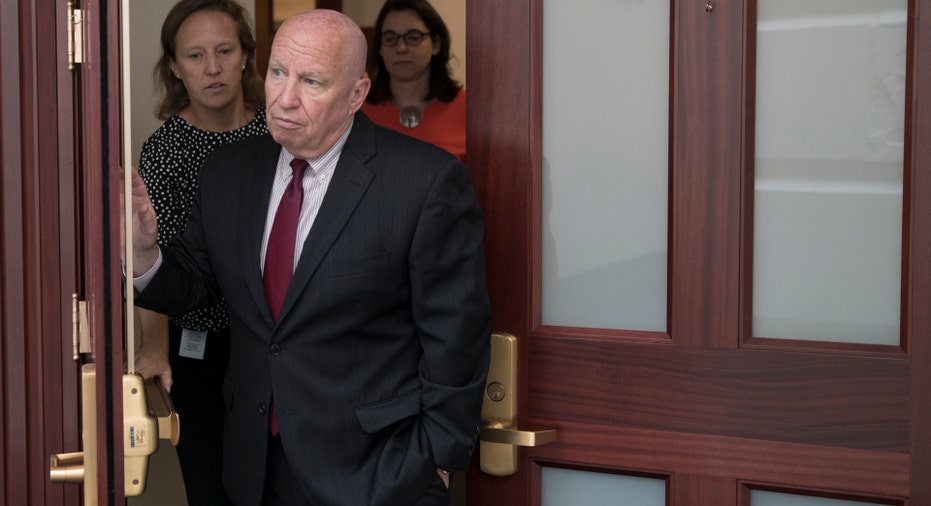Republicans may delay immediately cutting corporate tax rate

The House Ways and Means Committee is considering a gradual cut to the proposed 20% corporate tax rate within the Republican tax plan in order to avoid a spike in the deficit and to keep the final bill revenue neutral, FOX Business has learned.
Congressional lawmakers working on crafting a final tax reform bill are contemplating delaying an immediate cut to the proposed corporate rate reduction from 35% to 20% and, instead, bringing it down over a timespan of possibly three to five years, according to sources familiar with the matter.
In an interview with FOX Business, Rep. Peter Roskam (R-Ill), a member of the House Ways and Means Committee, confirmed that slowly phasing in the new corporate rate is on the table but insisted that they’re goal is to still cut the rate immediately to 20%.
When asked by phone if his committee is looking into a gradual implementation of the corporate rate tax cut, Roskam said “All those things are the subject of discussion and this is going to become more crystallized once we know the real budget numbers. Once the House and Senate figure out their budget target, the House Ways and Means Committee will write the bill toward that target. In the meantime that along with everything else is part of the discussion,” Roskam said.
“We are trying to get this rate as low as we can and as fast as we can which is why we are going to make a push for a 20% rate immediately. That’s what we are pushing for,” Roskam added.
A spokeswoman for the Ways and Means Committee declined to comment but referred to Rep. Chairman Kevin Brady’s (R-Texas) comments on Thursday at a press conference where he didn’t deny that all options are on the table.
When asked if there will be a 20% cut in the first year of implementation, Brady said “We are moving toward that whole design. We haven’t made a decision yet on retroactivity, framework and all that; but I will tell you we are accelerating growth in a big way.”
The idea behind not immediately cutting the rate to 20% goes back to the concern on Capitol Hill that cutting rates dramatically would increase the federal budget deficit.
According to the nonpartisan Tax Policy Center, cutting the corporate rate from 35% to 20% without phasing it in over time, would reduce U.S. tax revenue by $2 trillion over a decade.
Already though there’s an outcry from lobbyists on the possibility, albeit likely a slim one, that corporations won’t automatically get a massive tax break under the Republican plan.
“This is such a horrible idea,” Grover Norquist, president of Americans for Tax Reform, an anti-tax lobbying group, told FOX Business. “It makes no sense and it will be stopped.”
Politically, delaying the immediate implementation of a corporate rate that was guaranteed by President Trump and Republican lawmakers would also be a tough sell, especially for those who are looking to get reelected during the upcoming 2018 midterm elections.
“The reality is the tax reform negotiations have been a disaster. If the White House wants to stand by the elimination of something like the state and local tax, it will be dead on arrival. They better get their act straight. If this is what they call a blueprint we are going to have a Ryan care fiasco redone," Sam Nunberg, a former Trump campaign adviser during the 2016 election, told FOX Business.
Mark Mazur, director at the Tax Policy Center, explained that phasing in a tax cut is achievable, although deficit hawks may consider it a gimmick because it doesn’t address the long term costs of reducing the rate.
“We’ve done phased in tax changes in the past. If they do it this way, you can imagine it may get cut little by little every year. The reason you would do it is the cost of the tax cut in a 10 year budget window would be smaller than the long run cost. The real budget hawk people would say it’s a gimmick because you are camouflaging long run cost,” Mazur said.
The Senate is expected to vote on their budget in the coming weeks as they approved their budget resolution last Thursday which opened up $1.5 trillion for comprehensive tax reform.



















